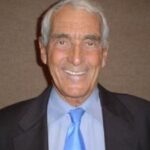Editor’s Note: Jay Lehr, science director for The Heartland Institute, reviews the previous quarter’s voluminous publications of the American Council on Science and Health (ACSH), an organization helping policymakers by debunking junk science and false health claims.
Proponents of government-centered health care use scare tactics to generate demand for unnecessary regulations, perpetuating a broken health care system proponents exploit to increase their power, according to recent publications from the American Council on Science and Health (ACSH).
Retaining this power requires proponents to double down on claims that lack, and sometimes contradict, evidence.
At Your Own Risk
Americans make poor decisions about health care because they overreact to miniscule or theoretical risks, giving regulators a fulcrum for increasing their power, says an ACSH review of Dr. Geoffrey Kabat’s Getting Risk Right. Kabat is a cancer epidemiologist at the Albert Einstein College of Medicine.
“[I]ntentional confusion about fear is an increasingly powerful, calculated tool used to sway consumer purchasing habits and behaviors and solicit donations to non-government organizations, as well as by officials at government agencies to increase their job security and power,” ACSH reviewer Josh Bloom writes.
Bacon Bias
In a bid to keep fear alive, an activist group continues to attack BMJ, formerly the British Medical Journal, for refusing to retract a twice-peer-reviewed article suggesting the U.S. Dietary Guidelines could be subject to error and bias. The guidelines are published every five years by the federal Office of Disease Prevention and Health Promotion.
The offending BMJ article criticized the panel responsible for setting the guidelines for ignoring evidence that saturated fat may not cause cardiovascular disease. The offended group, the Center for Science in the Public Interest, has asked the U.S. Department of Agriculture to force food distributers to label bacon and hot dogs with cancer warnings.
Jay Lehr ([email protected]) is science director for The Heartland Institute.
Image via Thinkstock





